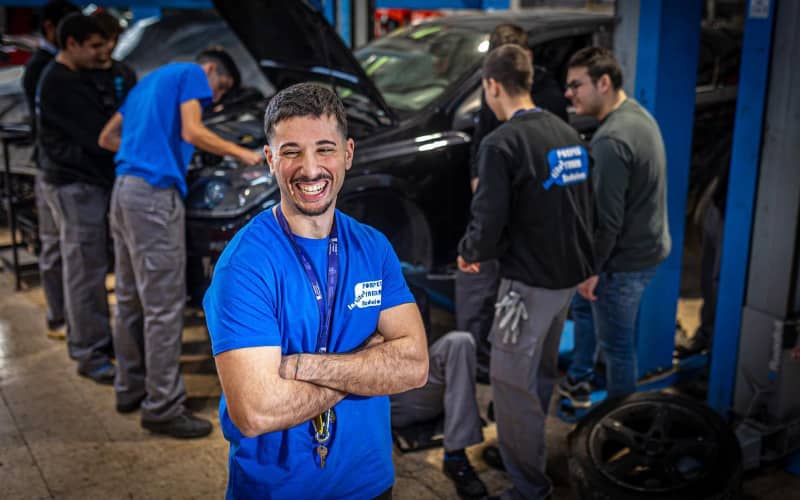Moroccan-Born Teacher Fights for Inclusivity in Spanish School Where He Once Studied

Hassan El Halloufi Zeimi, of Moroccan origin, is a teacher at the Pompeu Fabra Institute in Badalona, where he himself was trained. Today, he is fighting to ensure that no student is left behind, especially those of foreign origin.
"I never imagined becoming a teacher. I met a professor who encouraged me a lot, and in this institute, I was very well trained. This professor first encouraged me to continue my studies, then one day I met him by chance on the street, and he started again. He told me he was going to retire soon and encouraged me to try to replace him, and here I am," Hassan tells El Periodico.
Of Moroccan origin, the young man did his primary schooling in a public school in Santa Coloma where he suffered discrimination and racist behavior. "In my class, there was only one Caucasian person. We all came from abroad: from India, Pakistan, Morocco, Latin America... When you introduce yourself and say: ’Hello, my name is Hassan,’ the automatic response is: ’Oh, you’re Moroccan?’ It’s like when you’re a footballer. If you’re very good, you can play for Spain, but if you’re not very good, ’look at this Moor’..." he laments.
Hassan admits to having been very well received at this institute as a teacher. "At first I was afraid... I had students from Vietnam, Senegal, Morocco, Egypt, China..., from everywhere; and they are very shocked to see me as a ’teacher’, but they like it," he explains. And he adds: "I’m much closer to them, I tell them about my journey; there’s not too much age difference between us, and they’re comfortable. I have students who are in juvenile centers, who don’t understand the language... I translate the most basic things for them if I can."
Speaking of equality and diversity, Hassan believes that it is very difficult to apply. "How can I address equality issues in an automotive cycle, if there are no girls? And then, the students have totally different needs. Many boys
Related Articles
-

Spanish Olive Oil Industry Battles Misinformation Amid Supply Chain Scrutiny
4 September 2025
-

Ex-Terror Convict Urges Spain to Arm Separatists Against Morocco
3 September 2025
-

Foreign Buyers Flock to Spanish Coastal Rentals: Germans Lead Surge in Balearic Islands
31 August 2025
-

Catalan Police Deploy Stealth Units to Thwart Highway ’Flat Tire’ Scam Targeting Tourists
30 August 2025
-

Spain’s Military Readiness Under Scrutiny as Morocco Eyes Ceuta and Melilla
27 August 2025